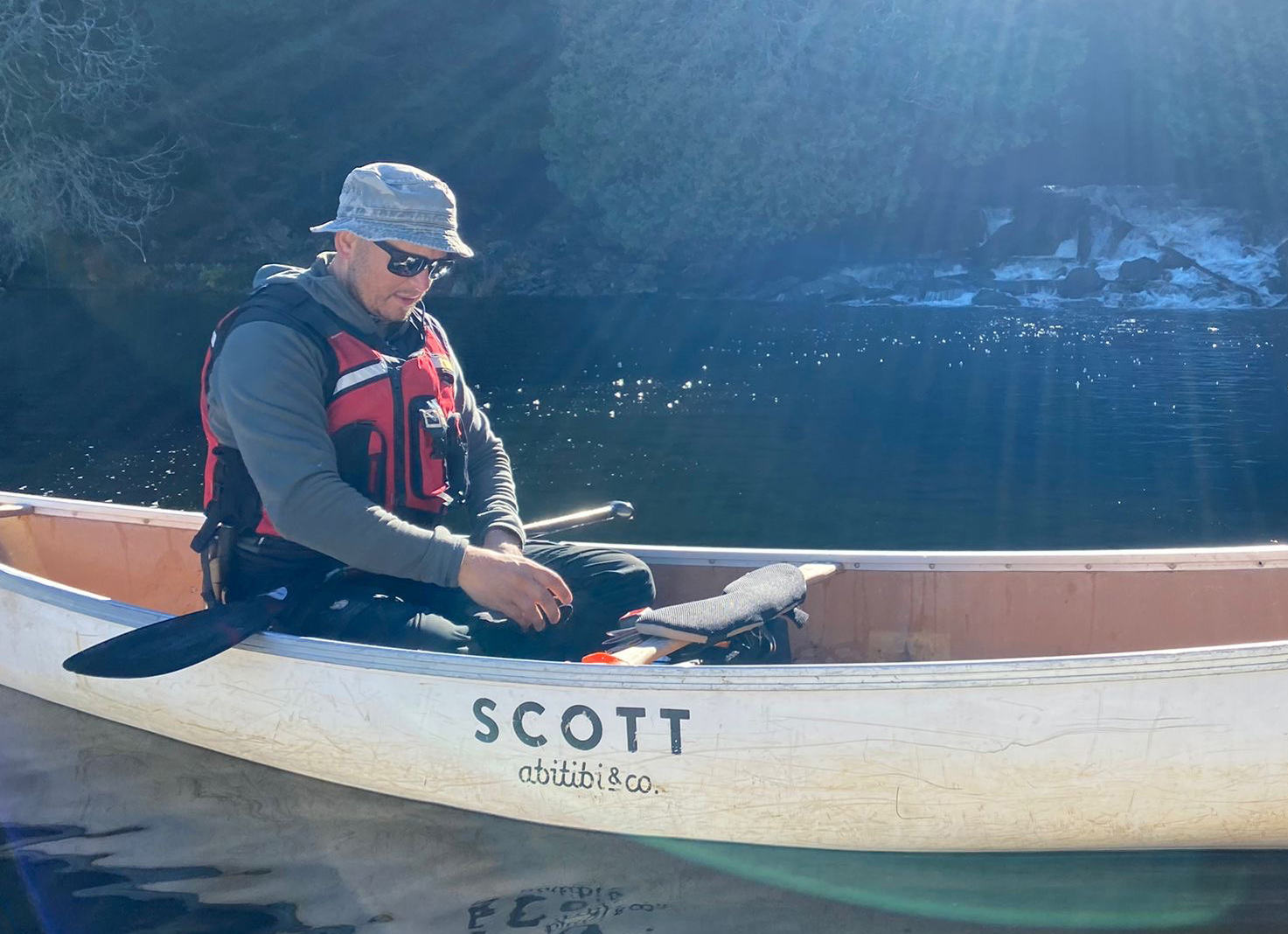“Arguably, the reason I’m both in science and in Canada are in some part due to my mum’s garden shed,” explains Dr. Tom Johnston, Atuka’s Chief Operating Officer.
Growing up in Wales, the plan was always for Tom to be a musician; he’d shown he was talented enough by auditioning his way onto the highly competitive and prestigious National Youth Orchestra of Great Britain. “I was all going great guns to be an orchestral double bassist,” he says. Then, at 19, having just completed his first year at the Northern Royal College of Music in Manchester, he went home during summer to visit his mother in Wales.
She asked that he and his brother move her shed. “My brother and I had had a few beers,” says Tom, “so we thought, ‘No problem. We’ll just go and lift it.’ We didn’t even empty it out, it was complete stupidity.”
Within a week, Tom was experiencing tendonitis in his arms and hands, making it impossible to practice his instrument. Months of physical therapy and other attempted fixes failed to stem the pain. “There was no way I was going to be able to practice the four to six hours a day I was required to, so I called it quits.”
Suddenly, pharmacology seemed like Tom’s next best option, his grandfather having been a professor of pharmacology at the University of Cardiff. “When I was a kid,” he remembers, “there were always some grizzly textbooks lurking around at his house that would be intriguing to have a look at.” As fate would have it, it was when he transferred from music college to the University of Manchester, that he would meet Atuka’s future founder, Jonathan Brotchie, and attend some of his lectures.
Since then, Tom’s research interests have focused on optimizing the translation of advances in fundamental Parkinson’s disease research into novel therapeutic strategies, earning him over 60 publications and an h-index of 37. As Atuka’s COO since 2003, Tom oversees our facilities in Toronto and Suzhou, China.
____
You go back more than 30 years with Atuka’s founder, Jonathan Brotchie, to your days at the University of Manchester. What was your impression of Jon back then?
While I was still an undergraduate in Manchester, I sought Jon’s advice on what I should do next. I was keen on neurodegeneration and Parkinson’s disease, and I’d inadvertently attended a couple of his lectures. I didn’t have anybody in my family with Parkinson’s, it just struck me as interesting, and Jon had been a charismatic lecturer. He ended up directing me to Dr. Susan Duty, with whom I would do my PhD at King’s College, London.
I was just an undergraduate, but he was very warm and accommodating, in contrast to some of the other lecturers in Manchester at the time. Then, as I was finishing my PhD in London, Jon had already moved to Canada and I was alerted to an advert by my good friend, Dr. Naomi Visanji, looking for postdocs interested in pursuing Parkinson’s research. So, over I came.
You initially planned to stay in Canada temporarily while you completed your postdoc. Why did you end up staying?
That’s something my family often asks me, why I stayed in Canada. Initially it was a temporary, two-year work contract for a postdoc, which is a perfectly normal length of time. I think I just really love Toronto. Also, one of my major hobbies is backcountry canoeing. Once I tried that, I was hooked. Just the notion that you had all this space up there in contrast to crowded England, that was huge. Then eventually I met my wife!
Where was your first canoe trip?
It was with another British friend, also new to Canada, Dr. Joanne Nash, who like me had never been backcountry canoeing. We went to the northeast end of Algonquin because it was the only reservation left in the park. We didn’t appreciate that there was a thing known as portaging, where you had to carry the canoe from one lake to another. I just assumed they were all magically connected by streams. We rented the heaviest aluminum canoe thinking that there was no value in having a light one.
I remember falling asleep by the fire with a burger in my hand and waking up. It’s a miracle we didn’t get eaten by bears. Things have evolved since then a little bit.
That you’re first and foremost a scientist makes you somewhat unique as a COO, a role typically for people from more of a business background. How does that help make the culture at Atuka different?
It’s making sure that our facilities and processes are fit for purpose. Probably there were moments along the way where things could have been done differently, but having a fundamental insight into the science means what you want to do is fit the operation to match the science, not the other way around. From that perspective, it’s arguably better that I have my science background versus having some sort of background in managerial training. The science should come first.
Do you ever think, without the shed incident, where a life in music might’ve taken you?
I’m still in touch with some of my compatriots from music school days, who went on to very successful careers playing in orchestras around the world. I guess that could have been my future. But to be frank, I’m very happy with the way things turned out. Unless you’re spectacularly gifted or very fortuitous as to which group you end up in, it can be a challenging life.
